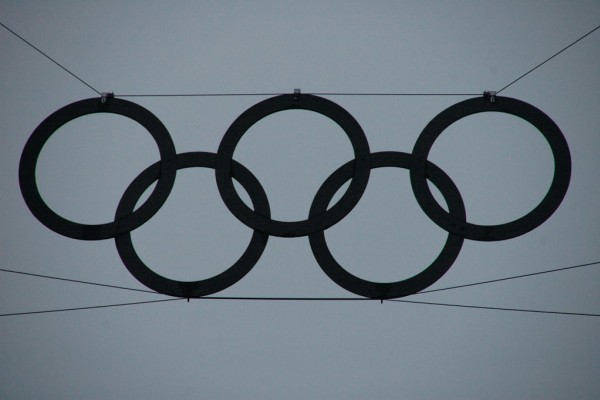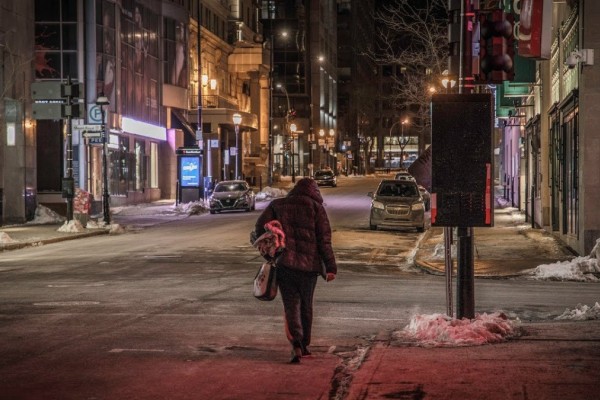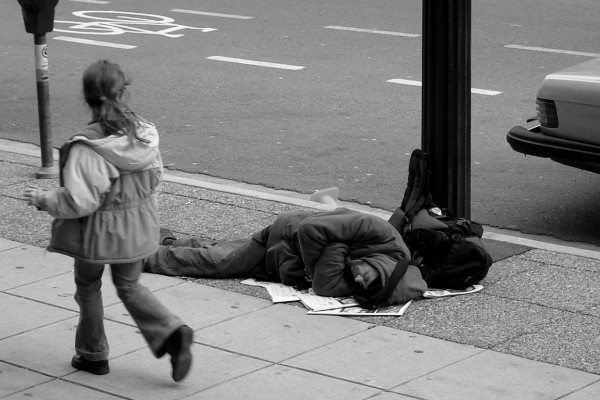Judy’s story

Vancouver from the Lion’s Gate Bridge, overlooking Stanley Park. Photo by Aditya Chinchure/Unsplash.
I am Judy. I lived at the Strathcona “Squat.”
I don’t like having my home called a squat. It is a home. It’s a community we have pulled together with our own hands. The term “squat” seems so demeaning. It’s something imposed upon us by a society that must demean the existence of organized poverty communities, because allowing them legitimacy would somehow legitimize our meagre existence. They create poverty and then can’t bear to look at it.
Today I am poor. In my life I have raised two children, I have loved, I have struggled and I have survived. I like to think I have been hardened by the fires of my life: by the struggles with my alcoholism, my mental health and my poverty. I faced the struggles of so many Aboriginal women in a white world.
My body was a commodity. My struggles were seen as somewhat less important than those of the person beside me who was privileged simply because of the paleness of her skin. It was somehow viewed as more acceptable that I, an Aboriginal woman would sleep under a bridge, wake up cold and hungry and struggle with alcoholism. But I am a survivor. I have been hardened in the broken places. These struggles landed me homeless, sleeping in the bushes, and praying for survival.
I joined the Victory Park “Squat” because it offered several things not the least of which was the security of a community that finally did not judge me or put me down. The greatest thing it offered me was hope. When I looked up I could see the sunshine of a new day.
Somewhere along the way I drew a line in the sand. I determined that I had gained some ground in this establishment of community, and I was not willing to give up one inch of that sacred ground.
I come from a culture that places the honour, dignity and respect of our elders above all else. So, when the veterans claimed we were desecrating their hallowed ground it was clear that I had to move. I knew what it was like to have your land taken over and the most sacred of your earth desecrated.
So, I moved with several other Aboriginal people and other kindred spirits who would honour the request of the veterans and elders to vacate their hallowed grounds at Victory Square.
We went to CRAB Park, a place that had once been important to my Aboriginal people. We rebuilt the community we had established at Victory Park.
At the same time, we were consumed with the vision of our unceded land. We could sense the spirit of our ancestors, encamping as we did, landing their canoes, fishing and gathering food, coming together as a community, to cook, to pray, to dance and to honour our grandfathers. As the spirit of those grandfathers surrounded our homeless community I felt good. I listened to others as they talked about the idea that a longhouse, and an Aboriginal centre with carvers’ huts, totems and dugout canoes could return to this place, giving it back to our culture.
And in those moments I felt the pride of my heritage rather than the despair of my poverty or the prison of my alcoholism.
But society did not want to look at my heritage. They instead wanted to recoil from my poverty. They would push it back into the alleys where it was less visible. They didn’t want to view me as a proud Native person, rather they wanted to see me as a heathen deserving only of loathing, fear and isolation.
Eventually we had to move again. I didn’t want to move. This was a beautiful place. We kept it tidy and treated it with the respect it deserved. Our only real crime was that we put a human face on poverty, and for that we had to be removed.
We sat in council and decided that we wanted to walk off this land with dignity. We spent time deciding where we would move to and where on that land we would situate our new community. We decided to move to Strathcona Park. We wanted to fit into the neighbourhood. We did not want this to be a political action, although we understood that politics was inherent with the gathering of the poor for anything but food lines and handouts.
We determined that when we moved we would set up some basic rules to live by and we would name the community, before it was named for us.
We chose the name Lance Pomeroy Memorial Community. He had been an acquaintance of some of us, a young homeless man who was beaten to death in the darkness of an early morning at Jericho Beach, during the same week we were fighting an injunction the Vancouver Parks Board (with the sanction of the Vancouver City Council) had brought against us in an effort to break up the same gathering of community that could have saved Lance’s life.
We picked a corner of Strathcona Park away from the children’s play area, the active soccer fields and the public amenities. It wasn’t as beautiful as CRAB Park, it wasn’t close to life essentials but we understood that the real beauty was in the reforming of community, and the true essentials were the support, safety, love and fellowship that came out of that gathering of community. We went about our daily lives, helping, feeding and sharing with each other. Some of us rounded up food, some of us cooked, we built a night-time toilet so that at night when the public washrooms were closed we could go to the washroom with dignity. In the morning we would dump the bucket into the public washroom, we would clean up and rake our section of the park. We remained as nonpolitical as possible, choosing peaceful and respectful co-existence as our political statement. We made friends with our neighbours, and others who used the park. I really thought that when all of the trouble was happening at Creekside Squat, we would be unaffected by it. I was wrong.
There was a sense of community that existed here that no SRO (single-room occupancy) or fleabag hotel could ever hope to offer. There was a safety, which I felt in the support and care of my neighbours. I have always felt uncomfortable and unsafe in the hotels of the East End. In all my time in our homeless community, I have never had to wake up to cockroaches crawling across my bed, I have never witnessed mice or rats inside my room, I have never had to listen to women being beaten in the room next to me and I have never had to wait for addicts to vacate the washroom. In these tents and this community I have found safety. I have found a basic human right that I do not want to surrender.
There was no judgment, and no fear of landlord in this community. I had seen people who suffered from mental-health problems who would never have survived in an East End slum-bag hotel, yet were accepted and embraced by our homeless community.
I didn’t think we had much to fear. We weren’t taking on the city government with in-your-face politics. No one in our community was exploiting the poor in an effort to manufacture some “class war.” The activists in our community got it. There was no working class, here. The poor were a class unto themselves. They respected our request to live in non-political co-existence.
We held out great hope for the new city council. They had been elected to embark in a different direction than the provincial government. I naïvely believed that the opposite of poor bashing was support for the poor. But I was to be proven wrong.
Although we had significant support from community groups that used the park and surrounding areas, we were due for a rude political awakening.
In the darkness of night they came for us.
As I sat in my tent, awaiting the return of one of my neighbours, the wrath of the city descended upon us. My homeless community, which had made every effort to exist in peaceful cooperation and respect, was about to be invaded.
Squads of police, fire-department personnel and city employees with bulldozers, dumpsters and paddy wagons assaulted our community.
I was removed from my tent by firemen and police with flashlights and billy clubs, I was given mere minutes to remove my personal belongings and then had to stand and watch as CUPE members took down my tent and threw it and the remainder of my worldly possessions into a dumpster, which was to be hauled to the city works yard and held for a maximum of one month, at which time it would be disposed of. Many of the community’s items were thrown into a garbage truck and crushed. Other people’s belongings were thrown on top of mine, apparently to meet the same ultimate demise. We were then escorted to the Evelyn Sayler Centre to be interned with about fifty other homeless people on mats on the cafeteria floor. I didn’t get much sleep that night. It simply lacked the privacy and security of my tent. The next night I didn’t get back to the shelter in time to get a mat so I, my oldest son and another friend from the homeless community at Strathcona Park ended up sleeping at Oppenheimer Park, blanketless, freezing and again not safe enough to sleep. We were now the epitome of homelessness and poverty in Vancouver.
On the following night we found that the mat program was only being offered for three evenings. Just enough time to separate us from our possessions and to look good for the media.
I was indeed proven to be naïve; the champions of the poor, the Vancouver City Council, had beaten us back to where they were most comfortable to see us.
Into the cold and dark insecurity of the night.
Or, as Bob Dylan might have put it:
Sleep with one eye open while you slumber, Cuz every little sound just might be thunder, Thunder from the city councils pens.
I don’t know how I will fare as Gordon Campbell comes for what is left of me, but I do know that I was left tonight with the sense of total and life-threatening aloneness. I have been alone before, and I WILL WIN.
This article appeared in the January/February 2004 issue of Canadian Dimension .










